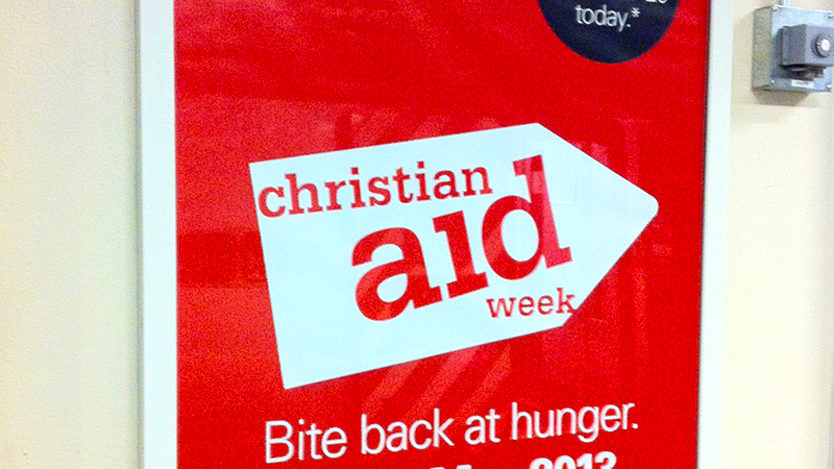
LONDON — Christian Aid's decision to close more than a quarter of its country offices and roll back programs elsewhere is linked to losses caused by Brexit, its head of program development and funding has said.
Dominic Brain said the development and disaster relief NGO — which acts as the official aid agency of 41 churches in Britain and Ireland — has been hit by the falling value of the pound, as well as wider uncertainty regarding the future of funding.
For Pro subscribers: Brexit — How NGOs can prepare for exchange rate volatility
Experts tell Devex how NGOs can manage their funds at a time of uncertainty.
The agency announced at the end of July that it would “streamline” its work in light of “the external challenges facing the charity during a period of political uncertainty and a tough environment for unrestricted fundraising.” Cutbacks include the looming closure of seven of its 25 country offices in Nepal, the Philippines, Ghana, Mali, Zambia, Bolivia, and Colombia — and the loss of up to 200 jobs.
Although the closures are “part of a long-term readjustment,” Brain said the current environment is creating additional strain.
“Our costs are rising because most of the currencies we spend in are pegged to the dollar, sometimes to the euro, rarely to the pound,” he explained. “So ... it’s a 15-20% increase in costs over the last few years [caused by changes in the exchange rate], and that’s on an annual basis.”
“If you’re stretched too thin and your revenue’s going down and your costs of operating are going up, you’ve got to really live within your means, so that’s what we’re having to do and it’s painful,” he told Devex at the Bond Funding for Development conference in London last week.
The pound has lost up to 20% of its value since the U.K. voted to leave the European Union in 2016, causing problems for many U.K.-based NGOs that operate largely in sterling.
Christian Aid created a foreign exchange stabilization fund worth £1.2 million ($1.4 million) in fiscal year 2016 to mitigate currency risks, which has since been drawn down to support its programs.
Aside from the foreign exchange risks, aid organizations have been worried about the impact of Brexit on human resources, the potential for existing contracts with the EU to be canceled, and the loss of eligibility for EU funding going forward.
As NGOs, “we are not-for-profit so ... we don’t have massive balance sheets, we can’t borrow money easily ... so our ability to manage some of these risks [is limited],” Brain said, “especially if EU funding is a big part of your portfolio.” He added that other changes have worn down the sector’s resilience to risk, including the loss of program partnership arrangements. This unrestricted funding mechanism previously provided through the U.K. Department for International Development helped NGOs cover overhead costs but was shut down at the end of 2016.
Founded in 1945, Christian Aid operated in 37 countries in 2018, employing more than 900 staff. The agency had an income of £117.9 million that year, including £11 million from the European Commission for programs in Colombia, Honduras, and the Dominican Republic, among other countries. However, U.K.-based organizations are expected to lose their eligibility for at least some EU aid funding after the country leaves the bloc.
Brain said he welcomed DFID’s move to underwrite contracts that U.K. aid organizations currently hold with the EU so that existing projects won’t be left in limbo in the event of a no-deal Brexit.
However, he said he wanted to see the department engage with the wider risks that the sector is facing, in particular on foreign exchange.
“Let’s just have a real discussion about the real risks ... We’re going into a period of massive uncertainty ... I think we need a bit of transition support, just as other sectors will get,” he said.
The U.K. is currently scheduled to leave the EU on Oct. 31, although it is unclear if that will happen, or under what conditions.
Read more about how Brexit is affecting the U.K. aid sector
► Brexit could cost DFID £200M in contract guarantees
► DFID could redeploy over 200 staff for Brexit








